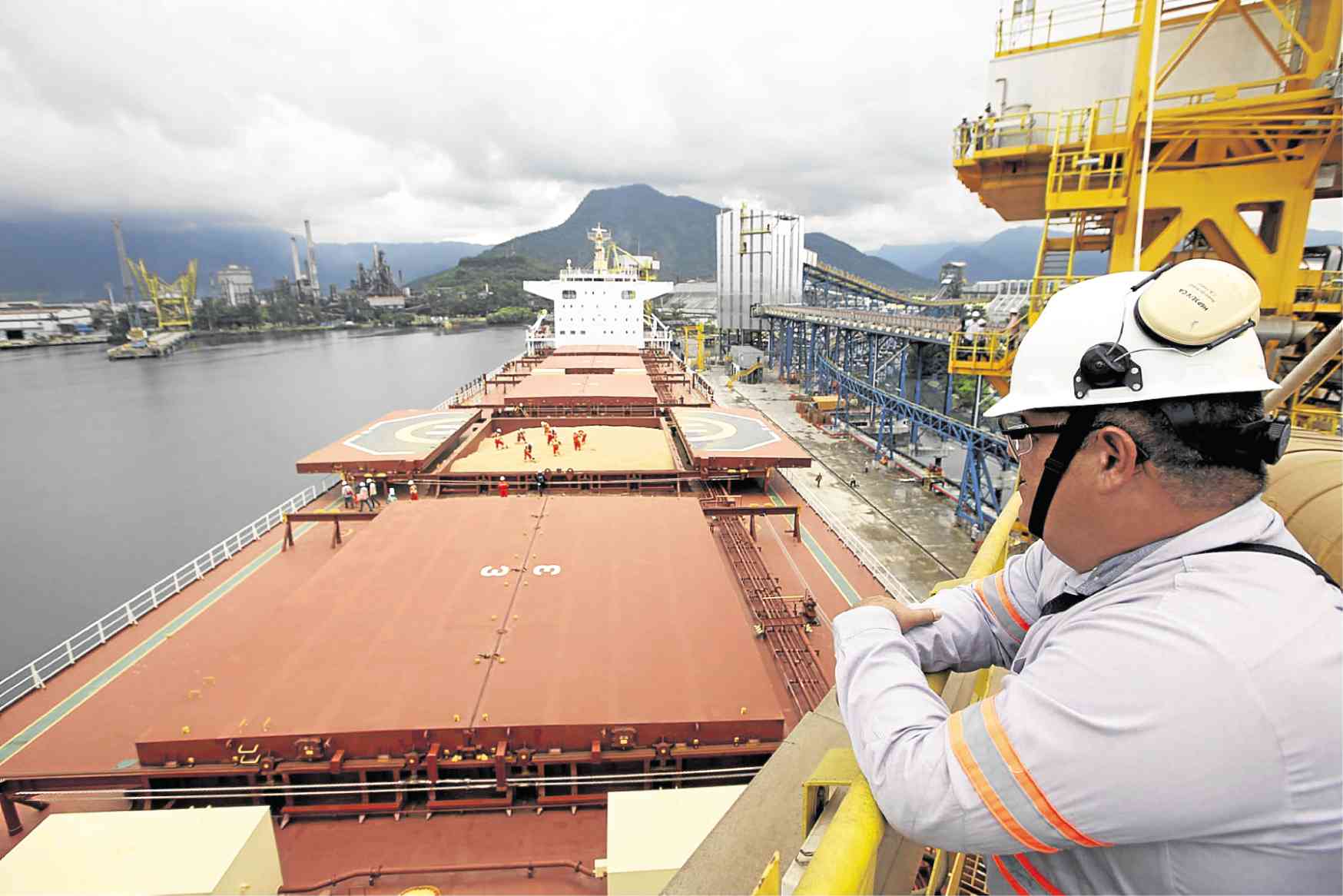
MUST STAY AFLOAT The head of the group United Filipino Seafarers says Filipino seamen have been losing their jobs to better-trained competitors from China, Russia, and Vietnam, and that Philippine maritime training courses urgently need an upgrade. —Inquirer photos
MANILA, Philippines — While stakeholders have welcomed the enactment of the long-delayed Republic Act (RA) No. 12021, or the Magna Carta of Filipino Seafarers, a national trade union center said it would contest a discriminatory provision of the law that unduly burdens sailors.
Signed by President Marcos into law on Sept. 23, RA 12021 is a comprehensive manual on the rights of the 580,626 Filipino seafarers, who comprise a quarter of mariners worldwide.
However, the Federation of Free Workers (FFW), along with other stakeholders in the seafarer community, is readying a petition at the Supreme Court to challenge Section 59 of the law, which states that pending an appeal or judicial review of a final and executory decision by the National Labor Relations Commission (NLRC) or voluntary arbitrators, a writ of execution on the disputed amount and damages shall be issued if the seafarer posts a bond.
READ: Marcos signs Magna Carta of Filipino Seafarers into law
FFW president Sonny Matula said in a statement that this provision imposes an “undue and discriminatory” burden on seafarers if their employers appeal their case before the Supreme Court.
“This is reverse social justice. The requirement of posting a bond [is a] burden on the shoulders of a seafarer or his family even after winning his case [at the NLRC]. We hold that [it] is a problematic provision due to its discriminatory framework [and] violates the equal protection clause of the 1987 Constitution,” Matula noted.
Delaying financial relief
“This disparity creates an unequal and discriminatory treatment, leaving seafarers with less accessible and more burdensome enforcement procedures compared to their land-based counterparts,” Matula said further.
“The provision fails the test of reasonableness and fairness as it imposes an undue burden on seafarers without serving a legitimate government purpose,” Matula added.
The bond requirement also contradicted the immediate executory nature of voluntary arbitration decisions, delaying the delivery of justice and financial relief to seafarers in dire need, especially in cases of disability or death benefits.
Labor chief’s comment
FFW said, “The lobbying efforts of shipowners and employers are so powerful that the bicameral committee of Congress ultimately decided to abandon the escrow system, but replaced it with the equally burdensome bond requirement.”
“This move ensures that no execution can proceed without posting a bond, once again depriving those who have less in life of what is rightfully due to them after a prolonged and exhausting litigation process,” it noted.
Even Labor Secretary Bienvenido Laguesma, in his comment on the draft bicameral report dated March 5, called the provision “antiworker, impractical and inconsistent with the protection to labor clause” as it favored employers.
The lawmakers who backed the bond provision, however, said it would improve the chances of employability of Filipino seafarers.
Back in May, the International Chamber of Shipping and the International Maritime Employers’ Council urged President Marcos to retain the bond provision to prevent “ambulance chasing,” which refers to lawyers who persuade seafarers or workers injured on the job to seek monetary damages from their employers.